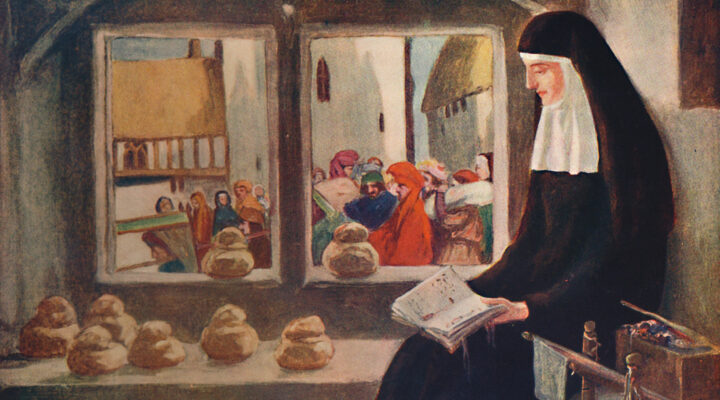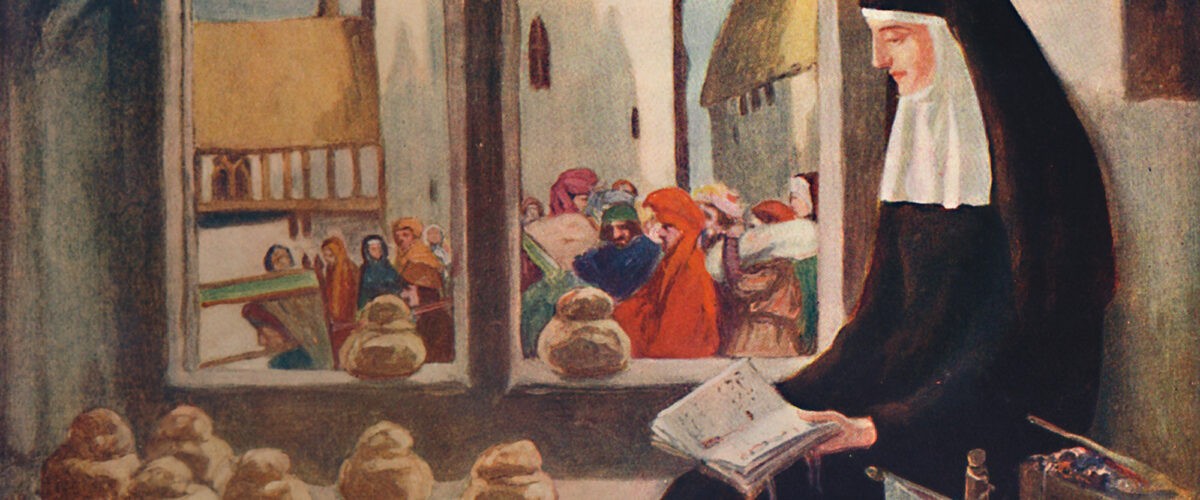This has been a hard year. Let me count the ways.
In 2020, the ravages of COVID-19 forced Nancy and I to flee our home and move in with one of our children.
As 2021 began, we were able to return, but, emotionally, we were still wobbly. By late January, I was fully vaccinated and, for the briefest of moments, it appeared we would all be returning to old ways and rhythms.
I was just particularly happy to return to the weight room and on the treadmill at a nearby recreation center. Having lost a kidney to cancer a year earlier, I was feeling old and vulnerable. But we now know that vaccination was no silver bullet. The staff and patrons at my gym, like the good Texans they are, refused to mask up. So, I beat my retreat and have not returned.

Alan Bean
I was caring for my grandchild Micah, just 8-months old at the time, when the Capitol was stormed by men and women driven to madness by conspiratorial delusions. I was raised by the religious tribe found to be at the heart of the turmoil. By all accounts, my tribe had lost its mind. Most of them, at any rate. I have spent the past year struggling to comprehend the enormity of the situation.
The catch in my throat
It came when I composed a song about a Waffle House server, the first song I have written in years.
It came when I presided at two funerals — one for Nancy’s sister, Kathy; the other for the father of an old friend.
But the catch in my throat didn’t only come in explicitly religious settings. It often arrives when I am holding my sleeping grandson, little Micah, on my chest. It comes when I suddenly remember how fortunate I am to be married to a bold champion of love like Nancy. Or when I think on the goodness of my three grown children.
Is this catch in my throat a sign of the Spirit’s presence? Not always. An old movie or song can sometimes trigger it. Sometimes it is simple sentimentality. Nothing wrong with sentimentality, but it is no substitute for Pentecostal fire.
I am sure most of the good Germans who flocked to Hitler’s Nuremburg rallies experienced a catch in the throat. As did the 30,000 unmasked devotees of the Ku Klux Klan who marched down Pennsylvania Avenue in 1925, or for true believers who attend MAGA rallies in our day.
The work of the Holy Ghost must be distinguished from mere Hallmark sentimentality or the emotional manipulations of antichrist.
What is the message?
That said, I do experience my catch in the throat as a genuine work of the Spirit. It’s the closest thing to mystical vision I am likely to encounter. So, if the Spirit is speaking to me through this transcendent experience, what is the message?
“It’s the closest thing to mystical vision I am likely to encounter.”
I can’t answer that question other than to say that the catch in my throat signifies that God hasn’t given up on me or the world I inhabit. In spite of pestilence, hardship, insanity, the Spirit is afoot.
But to what end? A new heaven and new earth, perhaps? If that seems a bit too grand, we might settle for the oft-quoted words of Julian of Norwich: “All shall be well, and all shall be well, and all manner of thing shall be well.”
That works for me. The catch in my throat is always accompanied by the sense that, the present darkness notwithstanding, God can, and will, heal the world. In fact, in this present moment, the healing purposes of God are being fulfilled.
The context of Julian’s vision
 Deprived of context, Julian’s words devolve into mush. The 100 Years War between England and France was raging when Julian was born in 1343, and it was still going strong in 1416 when she breathed her last. A nation impoverished by war often was reduced to famine, which led to peasant revolts and the revolutionary (and subversive) work of John Wycliffe and the Lollards. The nation was repeatedly ravaged by plague during her lifetime; Julian was only 6 when the first wave of plague raged through Norwich. In fact, Julian received her most tantalizing visions as a victim of plague tottering on the perilous edge of death.
Deprived of context, Julian’s words devolve into mush. The 100 Years War between England and France was raging when Julian was born in 1343, and it was still going strong in 1416 when she breathed her last. A nation impoverished by war often was reduced to famine, which led to peasant revolts and the revolutionary (and subversive) work of John Wycliffe and the Lollards. The nation was repeatedly ravaged by plague during her lifetime; Julian was only 6 when the first wave of plague raged through Norwich. In fact, Julian received her most tantalizing visions as a victim of plague tottering on the perilous edge of death.
If you think our times are tough, multiply the pain index by 10 and you’ve got Julian’s Norwich.
It would be easy, therefore, to dismiss her visions as disease-born delirium. After all, the visitations ended abruptly the moment Julian recovered her health.
But Julian assigned her visions the status of divine revelation. The “all shall be well” mantra had been uttered by very God.
And if it could be proved that Julian’s “all shall be well” sprang from the deepest reaches of Julian’s spirit, would that fact invalidate the message? Not to my mind. The Spirit is always groaning deep within us “with groanings that cannot be uttered.” The prophets and the mystics translate the message; they don’t invent it out of whole cloth.
‘Sin is Behovely’
Julian knew these words of hope came from God because, to her ears, they made no sense. Julian’s famous utterance begins with an odd-sounding phrase: “Sin is Behovely.” “Behovely” is an antique English word meaning “useful” or “necessary.” Somehow, the Spirit told her, the extravagant horrors ravishing her world would not frustrate God’s gracious ambitions. In fact, sin and evil were necessary to the process. Our sin and folly drive us to our knees. Sin and folly drove Jesus to a Roman cross. Only so were the ocean depths of God’s love disclosed to our shuttered eyes.
 Sin is necessary, even useful; so long as it doesn’t get the last word.
Sin is necessary, even useful; so long as it doesn’t get the last word.
Thus, “Sin is Behovely, but all shall be well, and all shall be well, and all manner of thing shall be well.”
On the surface, this doesn’t make a lot of sense. It didn’t make sense to Julian, either. In fact, she spent the next 15 years in a solitary convent cell, trying to wrestle meaning from this strange message. These weren’t her words, remember. They came from the very lips of the Spirit.
Finally, she came as close to an answer as she would ever get. “Know it well,” she wrote near the end of her life, “love was his meaning.”
Who reveals it to you? Love.
What did he reveal to you? Love.
Why does he reveal it to you? For love.
Remain in this, and you will know more of the same.
But you will never know different, without end.
So I was taught that love is our Lord’s meaning.
So if Julian is anything to go by, my catch in the throat anticipates the ultimate victory of love. Over all. In spite of all. For the sake of all.
As I sat in my recliner, cradling little Micah in my lap, I witnessed a mob of lost souls storming the walls of American democracy. Was I shaken? Yes, I was. Still, listening to the gentle breath of the babe asleep in my arms, I felt a wave of hope brake over me.
“Sin is behovely, and all shall be well, and all shall be well, and all manner of thing shall be well!”
The catch in the throat arrives unbidden. It can’t be manufactured. And yet it comes. With blessed frequency.
No mystic am I. And yet the streams of the Spirit continue to flow through the desert places of my troubled world. And in that we rejoice.
Alan Bean is executive director of Friends of Justice, an alliance of community members that advocates for criminal justice reform. He lives in Arlington, Texas.
Related articles:
Amid this pandemic, can we say with Julian of Norwich, ‘All shall be well’? | Opinion by Kate Hanch
‘To love is to suffer.’ Saints like Julian and Hildegard point us to Jesus’ way of suffering love | Opinion by Molly Marshall
‘Why do we need mountains?’ A child’s profound question merits a thoughtful response | Opinion by John Jay Alvaro


